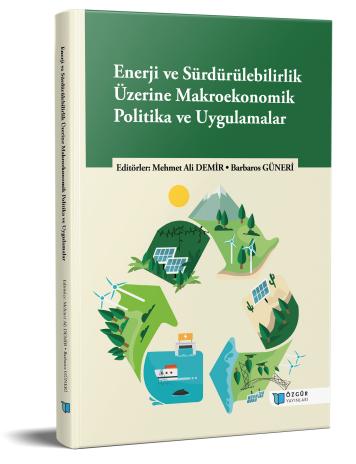
Structural Transformation, Sustainability and Inclusiveness: An Investigation on Türkiye
Chapter from the book:
Demir,
M.
A.
&
Güneri,
B.
(eds.)
2025.
Macroeconomic Policies and Practices on Energy and Sustainability.
Synopsis
Structural transformation, which refers to the shift of an economy's production from relatively low-productivity sectors to high-productivity sectors, thus increasing the economy's productivity, is considered one of the most important determinants of economic growth and development in the literature. After the 2000s, particularly with the Rio+20 conference in 2012 and the Paris Agreement signed by more than 190 countries in 2015, the concepts of green economy, green and inclusive growth, and sustainable development have become the most important and most debated topics in economic literature. Indeed, Türkiye has made serious preparations for the Rio+20 conference and has also signed the Paris Agreement. Following these developments, concepts such as increasing productivity, sufficient/qualified employment, women's participation in the workforce, poverty reduction, fair distribution of income and wealth among individuals, and environmental awareness have become as important as growth and productivity increases.The purpose of this study is to analyze the structural transformation that has occurred in Turkiye since 2000 to the present, in terms of economics, sustainability and inclusiveness. To this end, the conceptual framework will first be outlined, followed by an assessment of various economic and social data underpinning the structural transformation within the framework of sustainability and inclusiveness to reveal Türkiye's relative strengths and weaknesses, and finally, policy recommendations will be made regarding the transformation of Türkiye.

